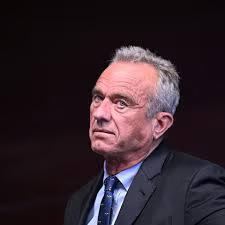The pharmaceutical industry and healthcare innovation face potential disruption as Robert F. Kennedy Jr. proposes significant reforms to the Department of Health and Human Services (HHS). His recent statements outline a vision that would fundamentally alter the relationship between government regulators and drug companies, particularly targeting what he describes as regulatory capture at the FDA.
Kennedy’s proposed reforms include substantial changes to drug approval processes and a restructuring of pharmaceutical research funding mechanisms. The presidential candidate’s stance reflects growing concerns about the influence of pharmaceutical companies on regulatory bodies and the rising costs of prescription medications in the United States. His approach would represent a departure from decades of established practices in drug development and approval protocols.
This perspective on healthcare reform emerges against a backdrop of broader debates about medical innovation, drug pricing, and public health policy. While some view these proposals as necessary corrections to systemic issues, others warn that dramatic changes could potentially slow the development of new treatments and therapies. The discussion highlights the complex balance between ensuring drug safety and affordability while maintaining the incentives necessary for pharmaceutical innovation.
The implications of such reforms would extend beyond just the pharmaceutical industry, potentially affecting everything from clinical trials to patient access to new medications. This debate touches on fundamental questions about the role of government in healthcare, the balance between regulation and innovation, and the future of medical research in America.










